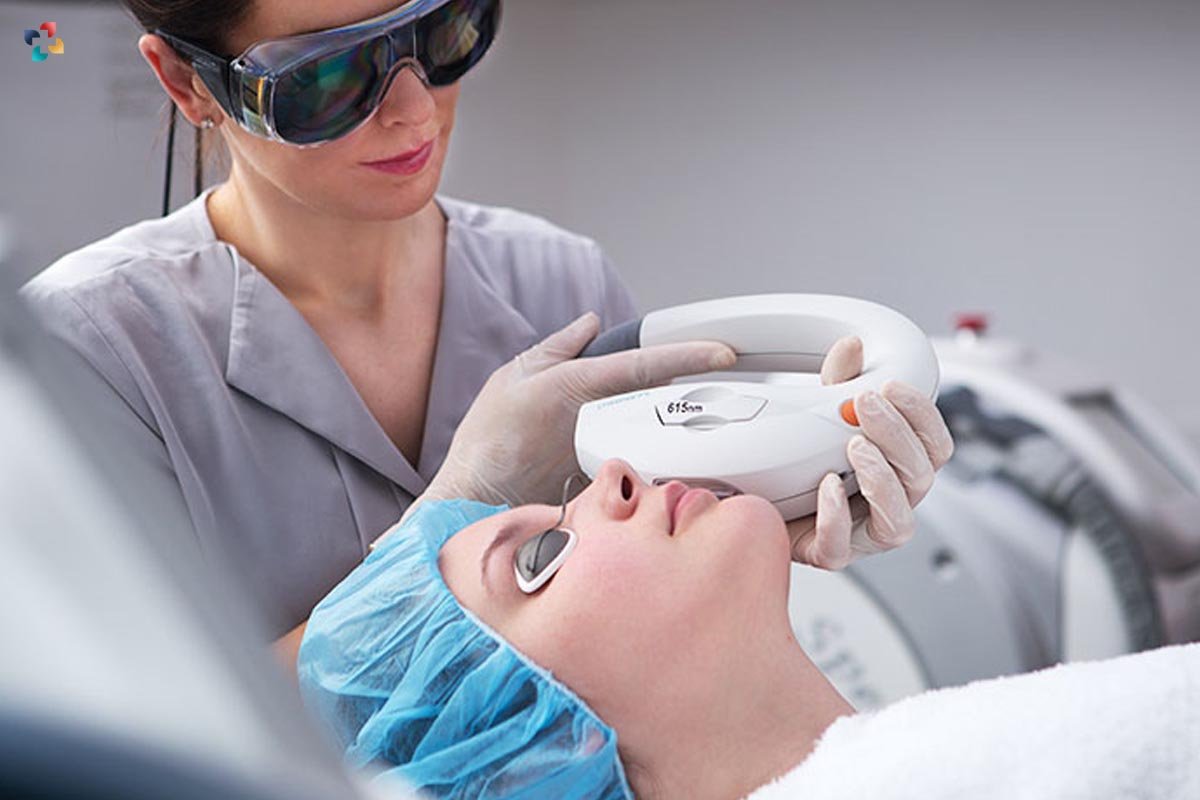Things about aesthetic nursing go by a variety of titles. They may be referred to as cosmetic nurses or nurse injectors. While the nomenclature may alter somewhat, the heart of what they perform on a daily basis remains the same—helping people look and feel their best via cosmetic operations.
While this particular field of Aesthetic Nursing work is a far cry from the life-or-death stakes of critical care nursing, it nonetheless relies on experienced and safety-conscious nursing practitioners. At first glance, it seems to be an appealing career for some, but there are a lot of things about aesthetic nursing before you delve in since it is a big departure from other nursing jobs.
Here are 10 Things About Aesthetic Nursing;
1. You will make others feel better in a new manner.
Aesthetic Nursing is a caring profession, but it takes on a new meaning while working in the field of aesthetics. Working in aesthetics may be a welcome change from working in a hospital, where patients are often scared, dissatisfied, and eager to go. They’re frequently in pain or dealing with a new diagnosis, which may need them to assist patients to work through nerves or anger.
Patients, on the other hand, are often far more enthused about cosmetic treatment sessions. While they may be nervous, they are enthusiastic about the changes they are seeing, which means they are eager to meet you.
Maintaining a good self-image is difficult for virtually everyone, therefore assisting people in feeling better about themselves can be a really satisfying experience.
“I love that I get to improve a client’s natural beauty, boost their self-confidence, and make someone feel better about themselves,” says Melanie Speed, owner of Flawless Aesthetics Med Spa.
She remembers a woman bringing in her kid, who was being tormented at school because of a significant bump on his nose. Speed was able to treat him with a noninvasive nasal procedure. He fell into tears and clutched Speed as she gave him the mirror. He informed her she had revolutionized his life by addressing his greatest insecurity.
“Sometimes, when I’m having a bad day, I remember that moment and it reminds me why I do what I do,” Speed adds.
While the emotions of patients may be satisfying, so can the labor itself. Aesthetic nurses employ their imagination to strike a balance between beauty and medicine. “I discovered that aesthetics enabled me to combine my passion for art and symmetry with my medical talents,” explains Speed.
2. Elective operations are still significant.
While working in Aesthetic Nursing does not carry the same weight as other disciplines for nurses, any errors made during an aesthetic operation might have serious consequences.

While aesthetic nurses may improve patients’ self-esteem, they can also let them down with unwanted injection sides effects such as a lowered brow or eyelid if a neuromodulator is over-injected or migrates. Vessel occlusions are another undesirable potential that might occur when a filler or neuromodulator is unintentionally injected into an artery. It may also happen after an injection when veins or arteries are squeezed.
A patient’s appearance is important, and errors may have serious consequences during aesthetic operations. That is why qualified healthcare workers with specific training are entrusted with this task.
3. Social media will be necessary for your work.
Because aesthetic treatments are often elective and paid for out of pocket, aesthetic treatment providers frequently engage in consultative sales—which necessitates generating interest. Maintaining a strong social media presence is a key (and time-consuming) approach for many aesthetic nurses.
“People want to see your work before they can put their faith in you,” adds Speed.
On social media, things about aesthetic nursing have found a home. Aesthetic nurses may use image-driven channels to communicate patients’ outcomes and answer queries about treatments and goods.
However, social media may be a double-edged sword. Speed has seen how, in recent years, increasing social media filters and picture manipulation have raised some patients’ unreasonable expectations. Some people desire to appear exactly like a specific star, which is just not feasible.
While controlling such expectations might be difficult, Speed says she tries her best to emphasize her patients’ distinguishing characteristics. “My role as an aesthetic nurse is to improve my clients’ distinctive attractiveness,” Speed explains.
Furthermore things about aesthetic nursing, some patients’ ideas of themselves are influenced only by social media. Body dysmorphic disorder may be seen in patients. Aesthetic nurses may be forced to have uncomfortable talks with these patients and refuse procedures if they fear they may do more damage than benefit.
4. You’ll never stop learning—or teaching.
Almost every operation performed by an aesthetic nurse is certified. Taking training to keep up with new treatments and research is essential for an efficient aesthetic nurse. Being qualified in certain techniques might also assist increase your reputation.
You’ll constantly be teaching in addition to studying. Patients may arrive at their consultations with incorrect information obtained from the internet or social media. It is your responsibility to assist them in achieving the greatest potential outcomes. This might include informing them about a different therapy than the one they requested in order to get the desired outcomes.
5. It might be a difficult profession to break into.
Things about aesthetic nursing, Unlike many nursing careers, there isn’t a scarcity of skilled applicants wishing to start in aesthetic nursing, and certain locations of the nation offer significantly more chances than others. This is a job that will most likely have a lot of competition and may be difficult to break into. Furthermore, clinics and medical spas may be highly fussy when it comes to recruiting, with high expectations for their employees’ physical appearance.
Given the possible hurdles to admission, it may be a good idea to reconsider your career path, especially if alternative sorts of nursing employment do not interest you. Will you be content working in a cosmetic surgery clinic, hospital, or other more typical bedside settings if an aesthetic nursing position does not materialize? Otherwise, this may not be the best route to a job in aesthetics.
6. The laws governing aesthetic nurses differ.
Healthcare is no stranger to complicated and crucial laws that, if not followed, might jeopardize Aesthetic Nursing or medical licenses. The standards that regulate medical spas, how services are advertised, and the qualifications or education required to deliver certain treatments differ by state.

Given the time and money required to get a license, it is critical for anybody working in aesthetics to understand what is and isn’t appropriate in the jurisdiction in which they choose to operate.
While this is true for all qualified healthcare providers, beauty and medical spas may occasionally find themselves in difficult-to-navigate legal situations, so proceed with caution.
7. There are prospects for advancement.
One of the finest aspects of things about aesthetic nursing is the chance for advancement in any specialization. An RN, like other specializations, may advance to the level of nurse practitioner (NP) and deal with a larger range of patients.
Aesthetic NPs may be able to start their own aesthetics practice in states that provide full-practice authorization to nurse practitioners. While this is a significant task, since there is a lot of “business” side of healthcare to handle, it enables NPs to hire their own staff and establish their own practice.
Speed claims that she has expanded her career by becoming an instructor for other aesthetic experts and starting her own training program. She also intends to establish other medical spas in the future.
Even if they have no commercial goals, an aesthetic professional may improve by learning new aesthetic treatments and remaining up to date on new breakthroughs in aesthetic medicine.
8. Becoming an Aesthetic Nurse
The first step in becoming an aesthetic nurse is becoming a registered nurse (RN). To become an RN, you must first get a degree—either an Associate’s Degree in Nursing (ADN) or a Bachelor of Science in Nursing (BSN)—as well as complete all other state licensing requirements, including passing the NCLEX-RN®.
Aesthetic nurses may also opt to further their studies and become nurse practitioners. A Master of Science in Nursing Nurse Practitioner program (MSN-NP) or a Doctor of Nursing Practice (DNP) program for nurse practitioners is required. Before venturing into aesthetic practice, aspirant aesthetic NPs would often undertake a wide NP specialized concentration such as adult-gerontology or family nurse practitioner (FNP).
9. Do you need to be certified as an aesthetic nurse?

While there are numerous credentials available for various procedures, there is one broad aesthetics-focused professional certification you may want to consider pursuing: the Plastic Surgical Aesthetic Nursing Certification Board’s Certified Aesthetic Nurse Specialist certificate. While this isn’t required, it may assist show your competence and commitment to the topic.
10. Is aesthetic nursing right for you?
Working in aesthetics is a unique opportunity to put your nursing talents to work while also making patients feel more like themselves. Whether you love skincare or are captivated by fillers, there may be a place for you in aesthetics nursing.
Bottom Line
While aesthetic nursing is different from some of the traditional nursing practices, it does require a similar level of care and responsibilities toward patients. The field also comes with its set of challenges where one has to have a specific skill set to tackle them. If you’re planning a career in this field, we hope our guide of 10 things to know about aesthetic nursing was helpful to you.
Also Read: 10 Natural Remedies to Reduce Nursing Stress







